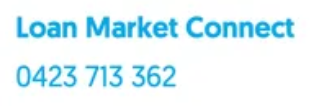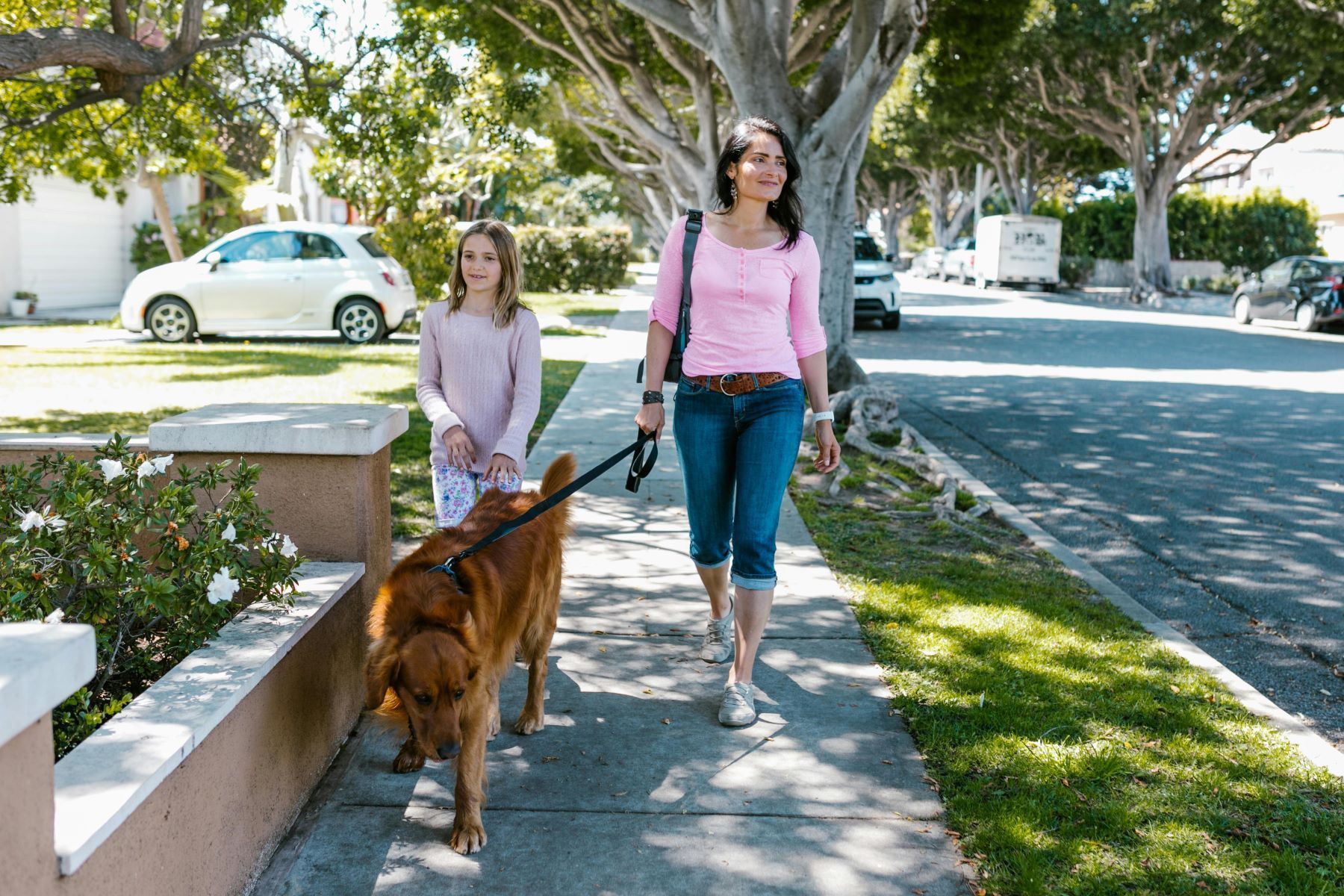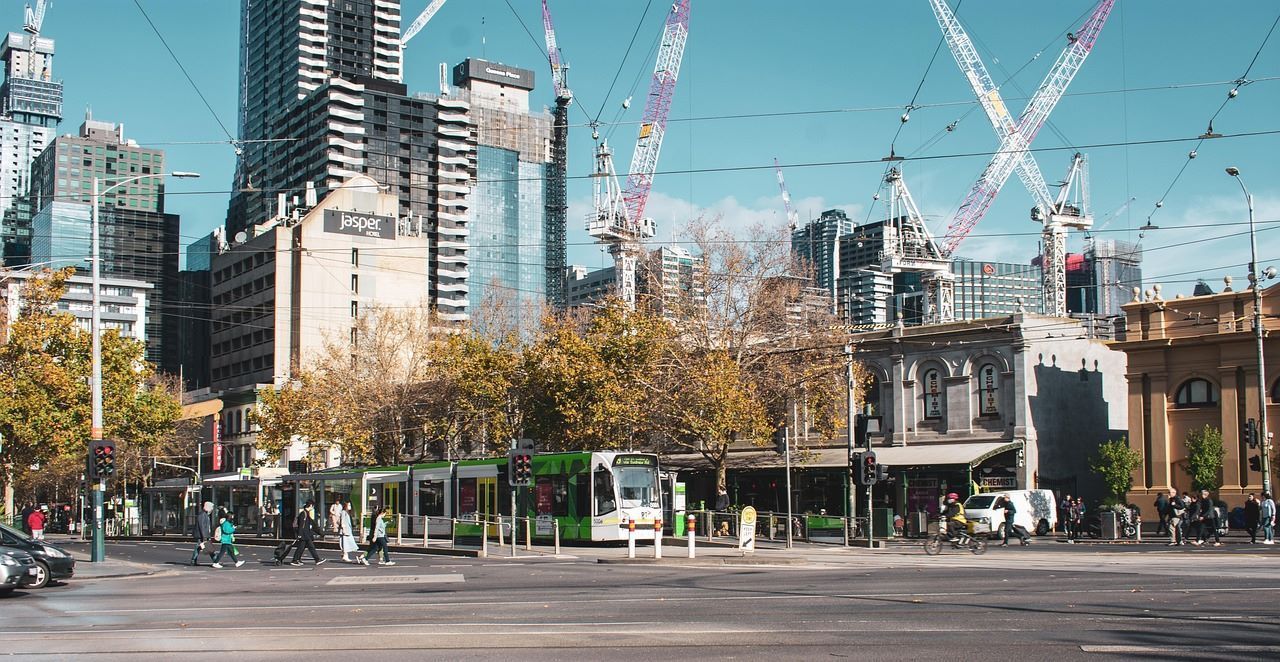Home Loans for Disabled People in Melbourne: Guide to Housing Opportunity
The dream of homeownership is a significant milestone, but for disabled people, it can come with additional challenges. Fortunately, in Melbourne, there are several programs designed to make the home-buying process more accessible for people with impairments or disabilities.
As experienced mortgage brokers, we understand Melbourne's property market and can help you secure a loan that fits your needs. From specialised loan programs to accessing government grants, we can simplify the process and unlock housing opportunities suited for your needs.
This guide will cover various home loan options, eligibility criteria, financial assistance programs, and real-world tips for disabled homebuyers. By the end, you’ll feel empowered and ready to pursue your dream home in Melbourne.
🏡 Need Home Loan help?
We've helped thousands of locals.
Just call us on 0423 713 362
Or visit our website homepage
Why Melbourne’s 2024 Property Market is Ideal for Disabled People Seeking Homeownership
Melbourne’s 2024 property market offers a unique blend of affordability, support programs, and inclusivity, making it an ideal city for people with disabilities looking to own a home.
- Diverse Property Options: With the median price for apartments around $587,000 (Domain Property Report), Melbourne offers relatively affordable entry points compared to other major cities like Sydney. This makes it more accessible for first-time and low-income buyers.
- Government Support: Melbourne has strong government-backed initiatives, including the First Home Owner Grant (FHOG), providing up to $10,000 to eligible first-time buyers, and the NDIS Housing Programs, which offer grants for accessible housing modifications (Victoria State Government Housing).
- Inclusive City Planning: Melbourne’s commitment to accessible housing design and inclusivity ensures new developments meet accessibility standards, creating more housing opportunities for people with disabilities (Housing Vic Accessibility Standards).
These factors, along with Melbourne’s supportive community and resources, make it a great environment for disabled homebuyers to achieve their goal of homeownership.
Home Loan Options for Disabled People
There are a variety of home loan programs and options specifically tailored to assist disabled individuals in Melbourne. Whether you’re a first-time buyer or looking for financial support, these loan products can help make purchasing your own residence more achievable.
Below are some of the most relevant loan options for 2024.
National Disability Insurance Scheme (NDIS) – Specialist Disability Accommodation (SDA)
The National Disability Insurance Scheme (NDIS) – Specialist Disability Accommodation (SDA) or NDIS SDA is a government-backed program that provides funding for individuals with significant disabilities. This scheme helps cover the costs of building or modifying homes to meet accessibility needs.
While not a traditional loan, the program makes homeownership easier by supporting renovations or new constructions that ensure the home is suited for the individual’s physical requirements.
First Home Owner Grant (FHOG)
Though not disability-specific, the First Home Owner Grant offers $10,000 for first-time homebuyers purchasing or building a new home in Victoria. Disabled buyers who meet the criteria can take advantage of this grant to offset upfront costs, such as the deposit cost.
Pension Loans Scheme
The Pension Loans Scheme (PLS) allows older Australians and those receiving a disability pension to borrow against the equity in their home to boost income.
Managed by Services Australia, this scheme can be a valuable financial tool for disabled individuals who already own a property but need additional funds for modifications or improvements. You can borrow up to 150% of the maximum pension rate, which is paid out as regular fortnightly payments.
Home Equity Access Scheme (HEAS)
The Home Equity Access Scheme (HEAS) allows eligible Australians of Age Pension age to access the equity in their home as a form of income, similar to a reverse mortgage.
While it is not specifically a home loan product, disabled individuals of pension age who own property can use the scheme to supplement their income, which could potentially help with housing-related costs. Younger disabled individuals would need to explore other options, as HEAS primarily targets retirees.
Low Deposit Loans through Private Lenders
Some private lenders in Melbourne offer low deposit loans for disabled homebuyers with access to government support, such as NDIS payments or a disability pension. These loans typically require as little as a 5% deposit, making them a more accessible option for buyers who might struggle to save a large down payment.
The flexible income requirements for these loans ensure that people with different forms of income, including disability benefits, can qualify. Be sure to check with your lender for specific terms.
Defence Home Ownership Assistance Scheme (DHOAS)
The Defence Home Ownership Assistance Scheme (DHOAS) is available to disabled veterans who have a service-connected disability.
The DHOAS provides subsidised home loans with competitive interest rates, making homeownership more affordable for eligible veterans. Veterans with disabilities can benefit from low monthly payments and flexible lending conditions tailored to their financial situation.
Eligibility Criteria: What You Need to Know
Securing a home loan as a person with a disability in Melbourne involves meeting certain eligibility requirements. These criteria are designed to ensure you have the financial means to manage a mortgage, while also considering the unique financial circumstances that disabled homebuyers often face.
Below are the key requirements you’ll need to be aware of before applying.
- Proof of Disability: Lenders may require documentation verifying your disability, such as a current NDIS plan or medical certification.
- Stable Source of Income: You’ll need to show consistent income, which can include disability benefits like NDIS payments, Social Security, disability pension, or long-term disability income.
- Minimum Credit Score: While some programs have lenient credit requirements, a minimum credit score of around 580–620 is generally preferred. Government-backed loans often have more flexible criteria.
- Deposit Requirements: Most lenders require a deposit of at least 5%, though some programs may accept smaller deposits depending on your eligibility for grants or low-deposit schemes.
- Income Limits: Some programs have income limits or thresholds. For example, government grants like the First Home Owner Grant (FHOG) require that your household income be within specific limits, especially for affordable housing programs.
- Proof of Financial Stability: You’ll need to provide financial documents, such as bank statements, tax returns, or Centrelink income statements, proving your ability to make monthly mortgage payments.
- Property Type: The property must meet certain criteria, such as being an acceptable property type for the loan program (e.g., a standard residential home or accessible housing).
🏡 Need Home Loan help?
We've helped thousands of locals.
Just call us on 0423 713 362
Or visit our website homepage
Expert Tips for Securing a Home Loan
Securing a home loan as a person with a disability comes with unique considerations, but with the right approach, you can improve your chances of success. Here are 5 expert tips to help you navigate the process smoothly.
1. Work with a Qualified Mortgage Broker: A qualified agent or mortgage broker can guide you through the complexities of finding the best loan options. They will also help identify specialised programs tailored for homebuyers with disabilities, ensuring you don’t miss out on key opportunities.
2. Improve Your Credit Score: If you have credit issues, focus on building a satisfactory credit history before applying. Lenders are more likely to approve your loan if you demonstrate financial responsibility over time, which can also lower your mortgage rates.
3. Explore Government and Financial Assistance Programs: Investigate government home loans, Grants for veterans, and payment assistance programs to reduce upfront costs. These programs often provide low-interest rates and flexible repayment terms, which can make homeownership more accessible.
4. Prepare Your Financial Documents: Be ready to provide proof of sources of income, such as long-term disability payments, disability support, and pension income. Showing you have stable income and meeting loan eligibility requirements will speed up the approval process.
5. Seek Accessible Housing Options Early: Start looking for accessible homes that meet your specific needs. In many cases, properties that align with your disability requirement or physical disabilities may take longer to find, so it's good to start your search early and have a flexible timeline.
Case Study: How John Found His Dream Home
John, a disabled veteran with a service-connected disability, had always dreamed of owning his own home. Living on his veteran’s disability benefits made saving for a deposit challenging. He wasn’t sure if he’d even qualify for a loan with his lower income levels and credit score.
After chatting with LM Connect, John learned about veterans-specific loan programs that offered low deposit loans and flexible payment options.
He qualified for a pension home loan with reduced closing costs, and within a few months, he was able to purchase a home in Melbourne’s western suburbs. The property was modified to suit his needs, and John now enjoys a stable, secure living environment.
Challenges Faced by Disabled Individuals in Securing Home Loans
While there are several mortgage options and affordable housing solutions available, it’s undeniable that disabled individuals still face unique challenges in their buying journey.
Below, we outline some of the most common obstacles faced by people with disabilities or impairments when trying to achieve the homeownership dream:
Payment Barriers and Income Requirements
Many lower-income disabled buyers and moderate-income buyers struggle with meeting the required income ratio or providing sufficient proof of income. Lenders often rely on taxable income and sources of income like long-term disability payments or pensions, which might not always align with traditional income units required for home loans.
Credit Issues
Bad credit or an unsatisfactory credit history can significantly impact loan eligibility. Although some programs offer flexible credit criteria or flexible credit rules, many disabled homebuyers face obstacles due to credit issues. Accessing a credit guide or working with a qualified agent can help address these problems.
High Mortgage Rates and Costs
Despite the availability of low-interest rates, disabled home buyers often face higher mortgage rates due to perceived financial risk. Even with low-interest loans, additional costs like a funding fee or high homeownership costs can make the process overwhelming, especially for those dependent on long-term disability payments or supportive services.
Limited Affordable Housing Options
Access to accessible homes is limited, and finding properties that meet the disability requirement for physical disabilities can be difficult. Although housing authorities and social housing programs aim to increase accessible housing options, the market lacks enough opportunity housing to meet demand.
Equity and Partnership Barriers
Accessing equity schemes or finding an equity partner can be tough for disabled individuals. Without the right financial backing, it’s hard to secure construction loans or navigate loan volume limits, particularly in Melbourne’s competitive housing market.
Navigating Grants and Assistance Programs
Though there are grants for veterans, payment assistance programs, and supportive housing models, understanding eligibility for these financial products can be a challenge. Navigating loan eligibility for loans for people with disabilities and understanding various types of loans (such as first-time home buyers loans or government home loans) often requires help from a financial advisor or real estate agents who specialise in disability needs.
How LM Connect Can Support People with Disabilities
We understand that finding the right home loan can feel overwhelming, but at LM Connect, we're here to make the process straightforward and supportive. Here’s how we can help:
- Tailored Loan Solutions: We’ll help identify the best home loan options for your specific needs, ensuring access to low-interest rates, flexible terms, and grants that are designed for disabled homebuyers.
- Navigating Government Programs: Our team has extensive experience with government grants and financial assistance programs like the NDIS, Centrelink, and veterans’ support, making sure you don’t miss out on opportunities for financial aid.
- Accessible Guidance Throughout the Process: From your initial application to closing on your new home, we provide clear, step-by-step guidance to make your home loan process smooth and hassle-free.
- Support with Eligibility and Documentation: We assist in preparing all necessary documents, such as proof of income, to meet the specific eligibility requirements for different loan programs and lenders, saving you time and effort.
- Ongoing Personalised Support: At LM Connect, you’re not just a client. We offer continuous support throughout your homeownership journey, answering your questions, and providing updates to make sure you always feel supported and informed.
🏡 Need Home Loan help?
We've helped thousands of locals.
Just call us on 0423 713 362
Or visit our website homepage
FAQs
Can you get a home loan on a disability pension in Australia?
Yes, people receiving a disability pension can qualify for a home loan. Lenders will assess your income stability and loan eligibility, and some offer specialised programs for disabled borrowers.
Can a person on Centrelink get a home loan?
Yes, it’s possible, but you’ll need to show acceptable income sources and sufficient income to cover loan repayments. Some lenders have flexible options for people on Centrelink benefits.
Do I need a high credit score to qualify?
Not always. Many lenders offering loans for people with disabilities have flexible credit rules and may accept lower credit scores.
Can I use disability benefits as a source of income?
Yes, most lenders will accept disability benefits, pensions, and Social Security as acceptable income sources.
Can I buy an investment property with a disability home loan?
Typically, no. Most disability loans are for owner-occupied properties, but some programs may allow it.
Conclusion
Owning a home is a huge milestone, and for people with disabilities, there are various home loan options, government programs, and financial assistance available that are inclusive and can help make that dream a reality. By understanding your loan eligibility and working with the right professionals, you can find the right path to homeownership.
If you’re ready to take the next step, we’re here to help.
Contact
LM Connect today at 0423 713 362 or visit
LM Connect to get personalised mortgage advice tailored to your needs. Don't go through the whole home loan process alone - let us help you become the owner of your dream house!

Researching home loans?
Just call us on 📞 0423 713 362
JACOB DECRU & OUR TEAM
We're LM Connect, run by Jacob Decru, your local Mortgage Brokers Melbourne and part of the Loan Market Connect team. You can also contact us here: connect@loanmarket.com.au
Our main Melbourne office:
1038A Dandenong Rd, Carnegie VIC 3163
USEFUL LINKS
All Rights Reserved. SEO by Copyburst



